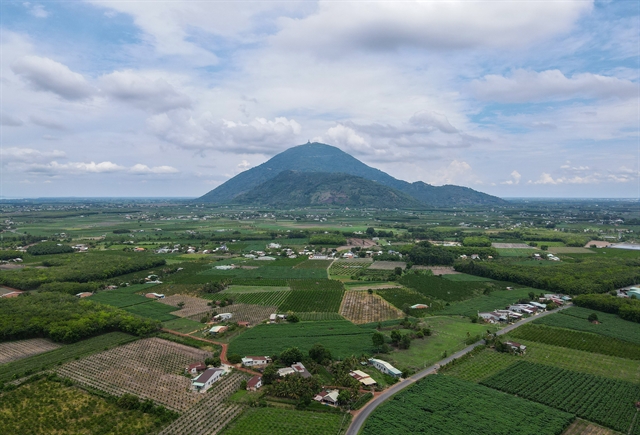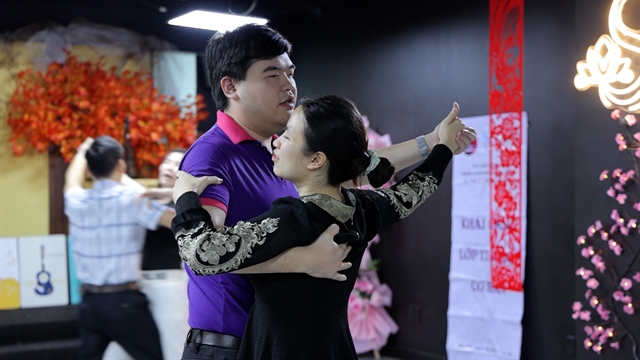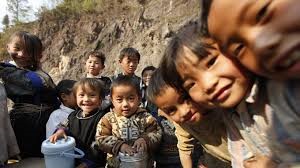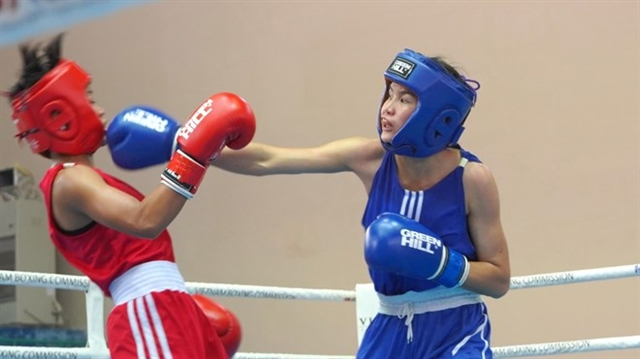 Society
Society

In an hour, the money the richest Vietnamese can earn from their wealth is almost 5,000 times higher than what the poorest group of Việt Nam spend daily on the basic needs.
 |
| Ethnic children in mountainous areas hold their lunch boxes on their way to school. A newly-issued report from Oxfam Việt Nam says that inequality is on the rise in Việt Nam--and ethnic minorities are among the most vulnerable groups. — Photo suckhoedoisong.net |
HÀ NỘI — According to new data, Việt Nam’s richest citizens can earn roughly 5,000 times more money in an hour than the poorest Vietnamese spend in a day.
The data, revealed on Thursday at an event held by Oxfam Việt Nam in Hà Nội, shows how big the inequality gap between the richest and poorest has become in the country.
The report, compiled by Oxfam’s Nguyễn Trần Lâm and his colleagues, said the richest man in Việt Nam earns in a day more than the poorest Vietnamese earn in 10 years. His wealth is so huge that he could spend US$1 million every day for six years before exhausting it.
In 2014, there were 210 super-rich individuals (each owned property valued over $30 million), and their combined wealth was around $20 billion, equal to 12 per cent of the country’s GDP and a half of HCM City’s GDP.
The number of the super-rich individuals is predicted to reach 403 by 2025, under London firm’s Knight Frank’s estimation.
Reasons for the inequality include economic development and ineffective use of funds to reduce poverty, participants at the event said.
Impacts of inequalities
According to the report, economic inequality has triggered inequalities of voice and opportunity.
Babeth Ngoc Han Lefur, Country Director of Oxfam in Việt Nam, said the inequality has made ethnic minorities, small-scale farmers, migrant workers and women more likely to be poor, more likely to suffer the most from discrimination and more likely to be unable to access to public services or participate in decision-making processes.
There are significant disparities between ethnic groups. The Kinh majority has tended to have higher living standards than others. Other ethnic groups only account for 15 per cent of the country’s population but make for 70 per cent of the country’s extremely poor.
Unequal access to health service is also holding back disadvantaged groups. For example, pregnant women from poor households are three times more likely to go without antenatal care compared to other pregnant women.
Research from the report also showed that disadvantaged citizens lack information and skills to understand tax processes, budget issues and other economic decisions.
In addition, Kinh public health services staff often showed discriminative attitude toward ethnic minority users, the report said.
“Increasing inequality is threatening decades of progress in Việt Nam,” Babeth said.
How to tackle inequality
Ngô Trường Thi, chief of the National Co-ordination Office for Poverty Reduction, said inequality between the rich and the poor is a common issue many countries in the world are facing.
In Việt Nam, the National Assembly has realised the situation and issued many policies to help people escape from multidimensional poverty for years.
Thi said to fix the inequality, the NA should focus more on reducing poverty in mountainous areas, effectively use the fund for poverty reduction and give more rights for localities to run programmes related to poverty reduction.
Nguyễn Hoàng Mai, vice chairman of the NA’s Committee on Social Affairs, said the NA has made bold decisions in an attempt to tackle inequality. For example, it recently decided to cut State budget allocations to HCM City and pour more for underprivileged localities.
“But we have a lot of works ahead to tackle inequality,” Mai said.
In term of policy, it needs to be designed to ensure every person has a chance to access basic services, especially education and healthcare, he said.
In term of participation of people in economic and cultural decisions, it should establish groups of experts, on behalf of people, to analyse and comment on decision-making processes, he said.
For instance, the groups could send their comments to NA deputies to discuss this at NA sessions, he said.
Lê Quang Bình, head of the People’s Participation Working Group (PPWG), advised the NA to approve the Law on Associations so that people can be given more chances to involve in the country’s decisions.
Bình also said raising awareness about inequality is now important.
Currently, many people think that inequality is the inevitable consequence of economic development, he said.
“If we have the attitude of not accepting inequality, our society will become more fair and equal,” he said.
In the meantime, Oxfam Việt Nam called Vietnamese Government, civil society groups, and media to monitor the implementation of policies to tackle inequality. The Government should urgently increase allocations to public services to fight inequality. — VNS




